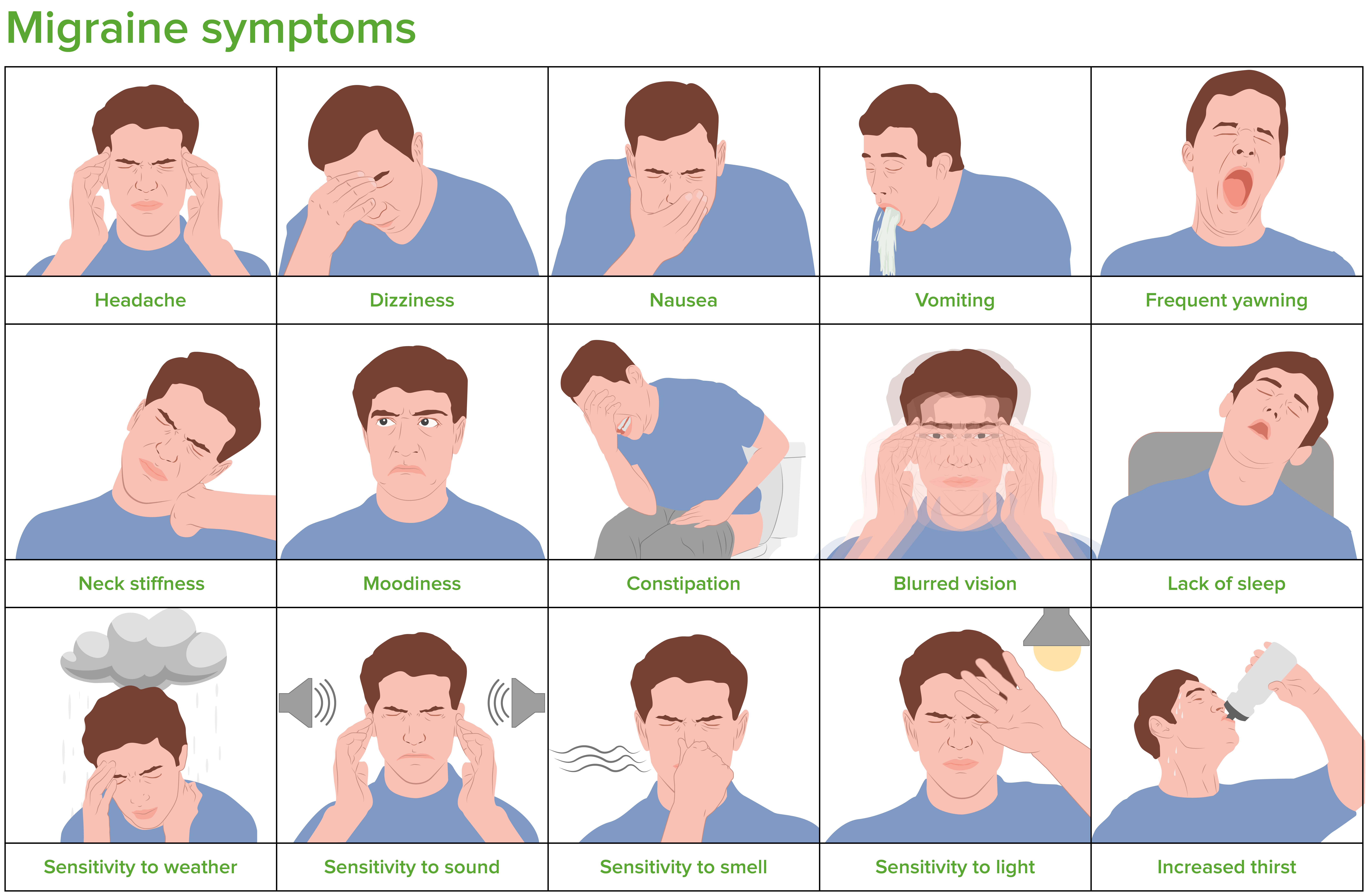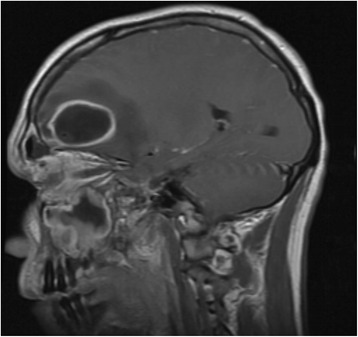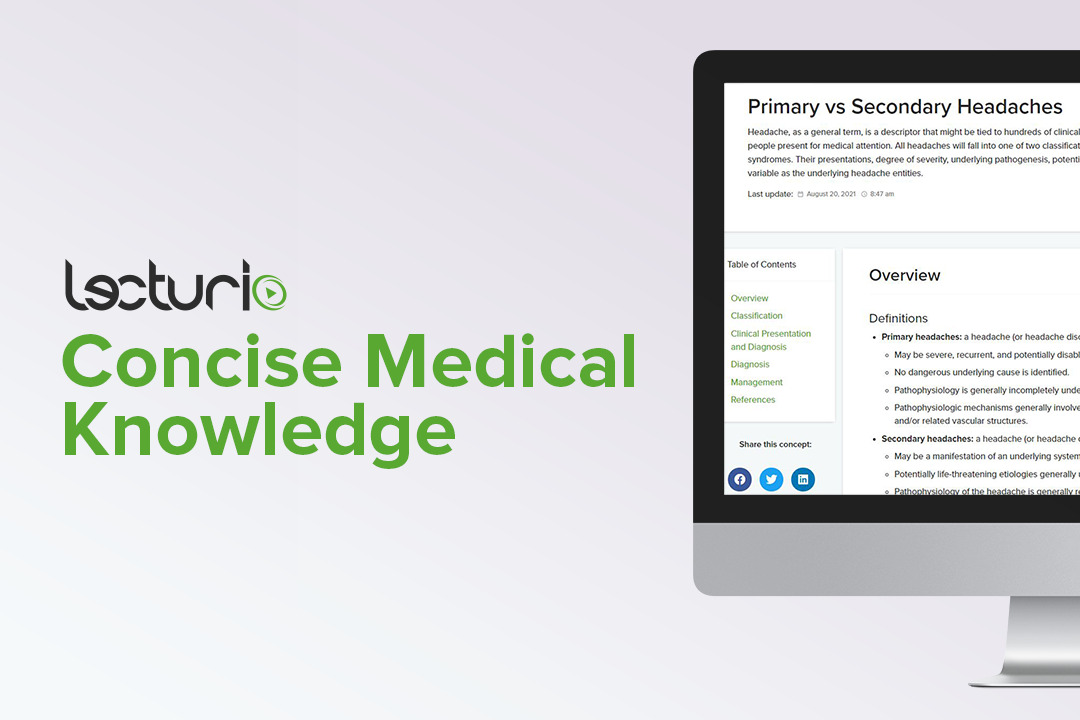Playlist
Show Playlist
Hide Playlist
Migraine: Management
-
Emergency Medicine Bord Approach Headache.pdf
-
Download Lecture Overview
00:01 So what should we do to treat these patients? Definitely when people come to the Emergency Department, one of our goals is to try and get them feeling better. 00:09 Our primary goal is to rule out any bad or very serious, or dangerous cause of their headache. 00:14 And then the next step is to get people feeling better. 00:17 So patients who have a more mild headache, you can give a non-steroidal anti-inflammatory medication. 00:22 The most common ones there are ibuprofen as well as mainly ibuprofen or Ketorolac is the other one. 00:31 Acetaminophen is the other medication that can sometimes be given. 00:35 For patients who have a more moderate to severe headache, and that's generally what we're seeing in the Emergency Department, it would be unusual for someone to come in with a headache that they described as being a little bit more mild. 00:48 So for the more moderate to severe headaches, we wanna think about giving a dopamine antagonist, or an antiemetic medication. 00:54 And the classic ones that we give are metoclopramide or prochlorperazine. 00:58 And those are generally given intravenously in order for them to be the most effective. 01:05 We also wanna consider giving some kind of dihydroergotamine or sumatriptan, parenteral steroids, so IV steroid can sometimes also benefit especially if the initial medications don't necessarily work. 01:19 Newer 2nd-line medication options include CGRP antagonists, such as rimegepant or ubrogepant, and lasmiditan, which is a selective serotonin 1F receptor agonist. 01:33 Intravenous fluids may be used, but newer evidence supports that fluids may not significantly improve patients symptoms. 01:41 Depakote or Valproic acid may be used for patients who are having a refractory headache. 01:48 So those are generally the medications that we start with. 01:52 There’s definitely other things that can be given as well. 01:55 But those are the most common treatment pathways that we use for patients with migraine headache in the Emergency Department. 02:01 One thing that’s important for you to remember to avoid are opioid medications. 02:05 And the reason that we avoid opioid medications are multi. 02:09 But for the most part, they can lead to a rebound headaches. 02:12 So if you give someone an opioid medication or they’re chronically an opioid medications for migraine headaches, once that medication wears off, the patient can get a rebound headache or potentially a more severe headache. 02:24 There are also issues associated with opioid medications being addictive for patients. 02:29 So for the most part in the Emergency department, that’s a medication that you wanna try and avoid giving for patients who presents with headaches.
About the Lecture
The lecture Migraine: Management by Sharon Bord, MD is from the course Neurologic and Psychiatric Emergencies.
Included Quiz Questions
Which of the following is preferred mode of antiemetic administration in moderate to severe headache?
- Intravenous
- Intramuscular
- Intranasal
- Sublingual
- Oral
Which of the following is NOT used in moderate-to-severe headaches?
- Intravenous H2 blockers
- IV fluids
- Depakote
- IV steroids
- Oral sumatriptan
What is the principal rationale behind avoiding opioid medications in patients with a headache?
- It can lead to a rebound headache.
- It can precipitate vomiting.
- It can decrease the seizure threshold.
- It has no proven efficacy.
- It causes severe respiratory depression.
Customer reviews
5,0 of 5 stars
| 5 Stars |
|
5 |
| 4 Stars |
|
0 |
| 3 Stars |
|
0 |
| 2 Stars |
|
0 |
| 1 Star |
|
0 |







